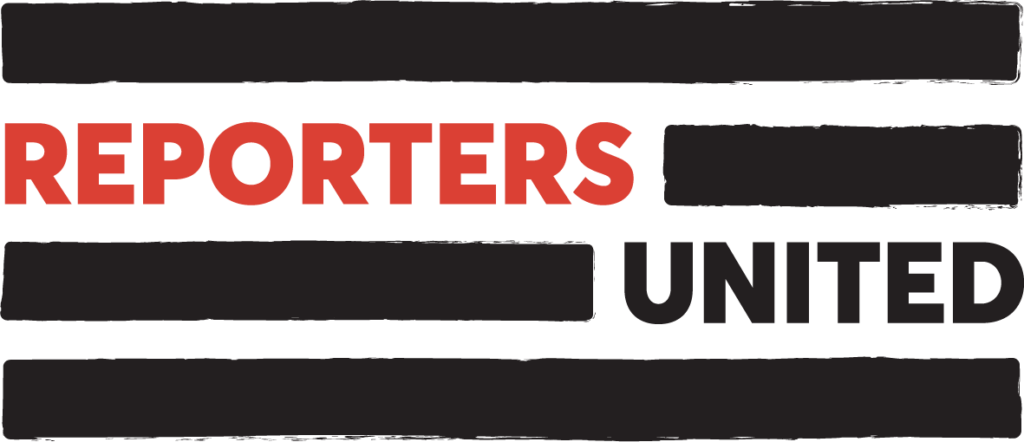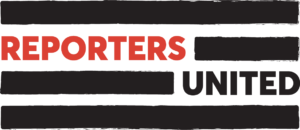Transparency: Who is behind Reporters United?
Contents
Contents
[Last update: December 31, 2024]
1. Introduction
Our only asset, our only currency is our independence.
From the outset, we pledged to “To restore a relationship of trust with the public based on practices which ensure transparency and independence: disclosure of our sources of funding, binding rules regarding our funding (no funding from the state or political parties, from corporations or from foundations which have a dominant position in the country’s public life), and disclosure of conflicts of interest for the journalists of the network.”
That is what this page is about. So far we have been publishing our financial statements, as filed with the tax authorities, our ownership status, our funding policy and our conflict of interest policy.
We are now expanding transparency and publishing in full detail:
- our financial data
- all our sources of income (including names and numbers)
- how we spend our money
- our ownership structure
- labour relations within Reporters United
- our code of conduct regarding conflicts of interest and transparency rules for reporters
- our policy on who can and who cannot be a funder of Reporters United.
Our funding policy is constantly being tested in practice. Minor changes have occurred, mostly making it stricter (changes are always disclosed). We have declined significant funding by donors who were deemed incompatible. In some cases the incompatibility was obvious – in others, we decided after internal deliberation.
The amounts we turned down in order to uphold our principles and safeguard our independence total hundreds of thousands of euros. For example in 2024 we decided not to accept a major, three-year grant from a Europe-based foundation after discovering that its main source of funding was the Open Society Foundations.
We believe that, ultimately, it is only through public support that we can stay on the steep path to truly independent, ground-breaking journalism.
2. Annual Accounts
Each year Reporters United publishes its accounts for the previous year. (Click on the links to see the accounts for 2023, 2022, 2021 and 2020.) The accounts are based on data from our filings with the Greek tax authority AADE. For 2024 (current year), the data comes from Reporters United’s bank account transactions.
Data outlined in the following sections is derived from our bank account transactions, which detail all revenue and expenses. As a matter of principle, there is no black money in Reporters United’s transactions. There are very small discrepancies between the two sources of data (AADE and bank account).
3. Revenue
Reporters United was established as a legal entity (as a non-profit company) in June 2019 and published its first story on its own website in November 2020 (“The murky waters of the Laskaridis shipping empire“).
We started out very small and we are growing fast (see graph). However, in absolute terms we remain a small project – which is why financial support from the public is so important.
We have come this far despite our very restrictive policy, which excludes funding from advertising, corporations, the Greek state, foreign governments and major foundations such as the Niarchos and Onassis foundations.
The graph shows actual income, excluding sales of Reporters United content for which payments are due.
Reporters United has four sources of revenue:
- Funding by the public, either through one-off or recurring monthly / annual donations, via the Support page.
- Institutional funding. Foundations or institutions that meet our strict criteria. (More on our funding policy below.) We did not receive any foundation funding until 2023. Since August 2023, we have received funding from the Limelight Foundation. In March 2024 we received funding from Antonis Schwarz, co-founder of Vouliwatch and the Guerilla Foundation.
- Selling journalistic content and journalistic services to Greek or international media. (More on our sales to media partners, below.)
- Project grants. Funding of specific investigations by European organisations such as Journalismfund and IJ4EU. Investigations receiving grants are selected by independent juries. (More on the project-based grants below.)
3.1 Funding by the public
From the outset, our aim has been to build a relationship of trust with the public and to bring together a community of readers who would support the project.
The content produced by Reporters United is and will remain openly available, free of charge. We want our articles to be widely read, not locked behind paywalls.
Readers who support us do so not to gain exclusive access to closed content but to nurture a much-needed kind of journalism. They understand that journalism can only challenge power if it is financially independent.
- We have not yet run a proper crowdfunding campaign – still, the amounts we are receiving in individual donations are steadily increasing and more and more donors are opting for recurring, rather than one-off donations. The total number of individual donors is 345, of which 143 are recurring monthly / annual donors. In addition, 202 donors have made (one or more) one-off donations. This is an encouraging start, but a long way from our goal of making funding by the public our main source of income.
- We do not accept corporate donations.
- We do not accept tricks to disguise corporate donations, such as large donations from company employees or splitting corporate donations into several small donations.
The names of individual donors are published on the Reporters United website and in our financial report if the total amount donated by an individual exceeds €1,000 per year.
Reporters United pays the appropriate tax to the Greek authorities on all donations.
Individual donors over €1,000 per year:
- Eleni Fergadi, 3,123.65€, January 3, 2025
- Eleni Fergadi, 3,123.68€, January 12, 2024
3.2 Institutional Funders
In July 2023, Reporters United signed a funding agreement with the Limelight Foundation (Netherlands) for € 50,000 per year for three years.
In March 2024, we received € 25,000 from Antonis Schwarz, founder of Vouliwatch and the Guerilla Foundation.
The criteria for accepting or refusing institutional funding are outlined in the funding policy section.
3.3 Sales to other media
- The largest revenue stream in this category comes from Investigate Europe. Investigate Europe publishes our joint investigations throughout Europe.
- Reporters United has sold content and journalistic services to international media outlets, including the BBC (UK), Spiegel (Germany) and Mediapart (France).
- Our media partner in Greece is EfSyn newspaper.
- Reporters United does not provide journalistic content to media outlets for free and does not publish journalistic work on its own website without compensating the author.
- Content already published on the Reporters United website can be shared under the Creative Commons Attribution of Creator 4.0 International License.
3.4 Project grants
At the time of writing (November 2024) Reporters United is involved in two cross-border investigations (Under the Surface, on groundwater, Forever Pollution Project Part II, on PFAS chemicals). For the first project we received 7,000 from Journalismfund. For the second we received 7,000 from Journalismfund, 2,500 from IJ4EU and 1,000 from Broadreach Fund / Arena for Journalism in Europe (the last entry is booked under sales to Arena as the grant was managed by Arena).
(You can read more about IJ4EU in the relevant section.)
4. Expenses
We are a non-profit organisation, so any profits are ploughed back into our journalism. In 2024 we took the important step of improving working conditions, with a corresponding increase in pay. Since the summer of 2024, Reporters United has provided full insurance coverage for five members of staff, which is reflected in the rising expenses for healthcare and pension contributions. The full impact of these changes will be felt in 2025. We recognise the challenge. Providing conditions that help our team focus on their work will require us to increase our revenue in 2025. Thanks to our readers and supporters, we are optimistic that we can achieve this.
5. Labour relations
Currently (November 2024), Reporters United employs:
- Four journalists on full-time contracts
- One journalist on a part-time contract
- One freelance journalist on a fixed monthly salary
- One journalist who owns a production company (Spoovio) through which he receives a fixed monthly payment
- Two non-journalists as freelancers on a fixed monthly salary
- A retired journalist (co-founder of Reporters United and partner of the Non-Profit), who works pro bono and is only reimbursed for work-related expenses.
- Two journalists involved in cross-border investigations, funded by Journalismfund and IJ4EU grants.
- Reporters United also purchases services from journalists and non-journalists on a freelance basis.
6. Ownership & key persons
6.1 Our Statutes
The original statute of Reporters United is available here. It is currently being amended to include our funding policy and to introduce safeguards to protect our independence well into the future.
6.2 Partners and legal representatives
The partners of the non-profit organisation, each with a 50% share, are Christoforos Kasdaglis and Nikolas Leontopoulos. (See below, for the change of ownership and the establishment of a workers cooperative.)
Reporters United was established in 2019 as a non-profit company (AMKE). It does not pay dividends and shareholders cannot take profits. All of Reporters United’s income is invested in its journalism operations.
One of the partners (NL) is paid €1,000 per month (x 14 months). The other (CK) is retired and works pro bono.
The legal representative of Reporters United AMKE is Nikolas Leontopoulos.
6.3 Creating a Social Cooperative Enterprise
The ownership structure of Reporters United is changing. Reporters United will remain a non-profit organisation with two partners, one of which will be a Social Cooperative Enterprise (SCE / KOINSEP in Greek), formed by reporters regularly employed by Reporters United. The share of the SCE in the capital of the non-profit will be large enough to give the workers a say in key decisions. This is the beginning of an experiment in self-managed media.
6.4 Workers Representative
In January 2024 we elected our first workers representative, Eurydice Bersi, who represents Reporters United on the joint media council of the Journalists Union (JUADN-ESIEA).
6.5 Legal Adviser
Reporters United’s legal counsel is lawyer Clio Papapantoleon.
7. Legal threats & legal costs
Our investigation into the spyware scandal led to the resignation of the former secretary general (and nephew) of the prime minister Grigoris Dimitriadis who then sued us for defamation, for different articles, in 2022 and 2023.
The first case was heard at first instance in January 2024. In October 2024, the court of first instance dismissed Mr Dimitriadis’ case on the merits. He appealed against this ruling.
The hearing in the second case took place on December 5, 2024. The court’s ruling is expected in 2025.
The legal costs for both cases were covered by international press freedom organisations. The legal costs for 2022 were paid by RSF (Reporters Without Borders), while those for 2023 and 2024 were paid by the ECPMF (European Centre for Press and Media Freedom). These amounts do not appear in the financial statements as they were paid directly to the lawyer of Reporters United.
Legal costs other than those related to the two lawsuits (e.g. legal review of articles before publication) are paid by Reporters United.
8. Funding Policy
Reporters United’s funding policy in 53 words: We do not accept money from the state and corporations, from the EU Commission and big foreign governments. Likewise, we do not accept funding from foundations, Greek or international, if they dominate public life. Furthermore the network’s reporters are bound by rules on conflicts of interest.
Our 10 NO's
- Money from the Greek state
- From foreign governments / embassies
- From the European Commission
- From corporations
- From banks and shipping companies
- From Greek foundations such as the Stavros Niarchos Foundation and the Onassis Foundation
- From the Open Society Foundations and the Gates Foundation
- Corporate contributions through donations
- Bank loans
- Advertising
8.1 Stavros Niarchos and Onassis Foundations
We do not accept funding from large foundations that dominate cultural, social and economic life. In the Greek context these are the Stavros Niarchos Foundation and the Onassis Foundation. These institutions influence public life through their funding so there is a need to report on them, not to be funded by them.
8.2 EU Commission
In recent years, the Commission has distributed millions of euros to journalists and media through direct programmes of its Directorates-General. We find these funds problematic when it comes to investigative journalism and have decided not to accept them.
8.3 Small states and EEA grants
In its initial version, our funding policy stated that we would not accept funding from large states (USA, China, Russia, Germany, France), leaving open the option of funding from smaller states. We had in mind the EEA Grants, whose main donor is the Norwegian government. In practice, we never applied for an EEA grant and ultimately decided to forgo funding from any government or state – large or small.
8.4 The case of IJ4EU
IJ4EU (Investigative Journalism for Europe) is perhaps the most important funding mechanism for cross-border investigative journalism in Europe, providing “grants to teams of journalists or news organisations in Europe investigating topics of public interest”. It fosters cross-border cooperation and joint journalistic investigations.
But there is a catch. IJ4EU’s funding comes mainly from the EU Commission and other donors: the Fritt Ord and Open Society Foundations, the Isocrates Foundation, Luminate and the city of Leipzig. (Note: Οpen Society’s funding was for the years 2021-2023, according to OSF’s own database.)
After much thought and discussion, we have decided not to exclude Reporters United and its reporters from potential IJ4EU funding, for the following reasons:
The Commission is not involved at any stage in deciding which projects to fund. There are two levels of decision-making that separate the Commission from the beneficiaries: the independent journalistic bodies that run IJ4EU and the jury that selects the projects.
More specifically:
IJ4EU is managed by four independent journalism organisations, the International Press Institute (IPI), the European Journalism Centre (EJC), the European Centre for Press and Media Freedom (ECPMF) and Arena for Journalism in Europe.
The Commission is not involved in the project selection process. The juries evaluating the journalists’ applications are appointed exclusively by the above-mentioned IJ4EU partners.
According to IJ4EU, “All funds provided by donors are managed by a consortium of independent organisations (IPI, EJC, ECPMF and Arena) dedicated to the protection of press freedom and independent journalism. No donor is permitted to exert influence over the selection of grantees or their work. Furthermore, IJ4EU is committed to protecting the editorial independence of all grantees.”
8.5 Employment incentives
At the present (November 2024), we do not use any subsidized employment schemes, such as OAED programmes. In the five years of our existence we have used such a scheme once, to employ a journalist for a period of 12 months at a reduced rate of insurance contributions.
8.6 Changes in funding policy
We are committed to maintaining the basic principles of our funding policy. If we decide to change them, we will (a) update our transparency page, (b) clearly state these changes in our next report, and (c) communicate the change through our social networks.
9. Conflicts of interest
9.1 Relationship with government and state
- Holding a government or state position is incompatible with participating in Reporters United.
- Employment in state-owned media, such as ERT and Athens News Agency is of course allowed.
- However, employment in the General Secretariat of the Press (a government ministry) or in press offices of the government, the state and partially state-owned companies (e.g. EYDAP, PPC) is incompatible.
Parallel employment in other professions (e.g. doctor, teacher etc) is of course allowed.
9.2 Relations with the private sector
- Concurrent employment in the private sector is permitted, but Reporters United reporters must declare it in their declaration of interests*.
- Concurrent employment in press offices, communications departments, public relations or consultancy firms or firms providing consultancy services to corporations is incompatible with participation in Reporters United.
9.3 Participation in companies
- Participation in the equity or management of companies is permitted, but Reporters United journalists must declare it in their declaration of interests*.
- Special consideration will be given to ‘politically interesting’ companies, for example listed companies, companies involved with the public sector, etc.
9.4 Political activity
- Political activity is not incompatible with journalism, but Reporters United reporters are required to declare it in their declaration of interests*.
- However, parallel work for political parties, including their press offices, is prohibited.
- Declaration of Interests
*Once a year, Reporters United journalists complete and sign a Declaration of Interests*, which is posted on their profile on the Reporters United website, detailing their financial interests (e.g. company shareholdings), possible outside employment, membership in political parties, etc.




